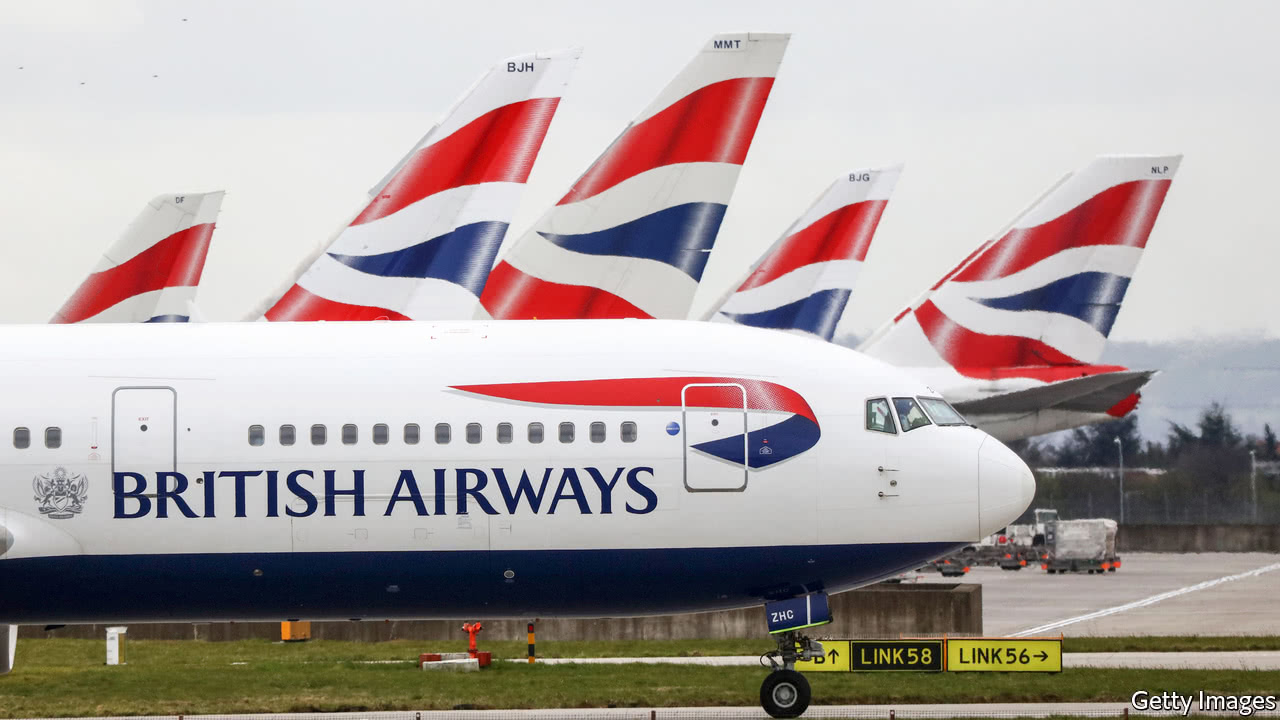
ALONGSIDE Eurocrats, straight bananas and anyone who opposes Brexit, Britain’s tabloid press has found something new to hate this year: British Airways (BA). Britain’s flag carrier has been criticised for cutting legroom in economy, axeing free food and drink on short-haul flights and—horror of horror—the amuse bouche that used to be served before dinner in first class. To save face, this week BA’s chief executive, Alex Cruz, who has come under sustained criticism for the cuts to service quality, announced that the carrier would be tarting up its offer. This would include more free meals, better wi-fi and 72 new planes. “We’re bringing back the glory days”, Mr Cruz proudly crowed. But not all of the improvements may be as good for frequent flyers as he advertised.
Among the changes planned for 2018, BA is moving to so-called “dynamic award pricing” in Executive Club, its loyalty programme. This means that tickets paid for with points from the programme will be no longer calculated in distance, but the cost BA is selling the ticket at. Air France-KLM, a rival legacy carrier, also announced similar changes as part of an overhaul of its Flying Blue loyalty programme. Starting in April, in addition to dynamic award pricing, members of the scheme will also earn points based on how much they spend on a ticket rather than how far they fly.
-
Proposed changes to frequent-flyer programmes may be bad news for budget travellers
-
Minneapolis and St Paul elect new mayors
-
An intimate look at the Obama administration
-
Tariq Ramadan, a star of Europe’s Muslim intelligentsia, confronts accusations of rape
-
Donald Trump is crushing it on Twitter
-
Why London’s house prices are falling
This shift will fundamentally change the relationship between loyalty-programme members and airlines. Instead of earning miles as a function of distance travelled, passengers will soon be rewarded for spending the most money. And instead of published tiers dictating the price of an award ticket, the way loyalty programmes traditionally managed the fares, dynamic pricing will allow the required points needed for a free flight to fluctuate dramatically as the retail price of the ticket changes. There is no doubt that the changes will shrink the loyalty programmes to focus on those that tend to be high spenders on tickets. But from the airlines’ perspective, a smaller scheme with fewer potential liabilities is what is necessary to compete with the likes of Norwegian, a low-cost carrier with much lower overheads.
The impact of these changes will gradually be felt by BA and Air France’s frequent flyers, as the incoming stream of miles slows to a trickle and as it becomes more expensive to swap points for free flights. Such schemes used to a key part of their strategy to keep their passengers coming back to them, rather than change to budget airlines that offer lower fares but leaner offerings for frequent flyers. The question that remains is whether BA and other legacy carriers are sacrificing the very thing that keeps their passengers away from the clutches of Norwegian and the like.
Source: economist
Proposed changes to frequent-flyer programmes may be bad news for budget travellers